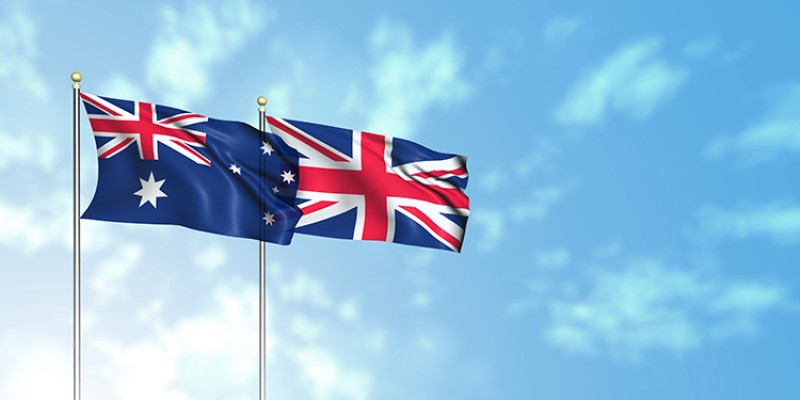
You are likely to be aware of the UK/Australia trade deal that is due to come into effect at the end of this month (31st May 2023), but you may be less sure of how it might impact your business. Here’s a run-down of the key elements of the Free Trade Agreement with a few considerations for British exporters.
Key elements of the FTA (source: BCC)
- There will be zero-tariff, zero-quotas on the vast majority of UK exports to Australia from the first day the FTA is in force. Tariffs on whisky, gin and wine will be abolished.
- In the UK, there will be a lengthy transition period (over 15 years) on certain Australian agri-food imports to safeguard UK domestic producers. Tariff rate quotas will be applied over the transition period.
- The FTA will provide market access to Australian industrial product markets for UK goods from day 1.
- Professional services (e.g. accountancy, legal) will have considerably improved market access, on business travel and terms and conditions of access. The FTA will provide mutual recognition of professional qualifications; market access will be provided unless dealt with in reservations.
- There will be a reciprocal labour mobility scheme for under 35s for up to 3 years, as well as a reciprocal removal of economic needs tests on sponsor visas. Balanced guarantees that are broadly reciprocal to maintain visa pathways for service suppliers for a substantial number of sectors.
- There will be equivalence on SPS (Sanitary and Phytosanitary) measures, allowing for digital Export Health Certificates to be used.
- The government procurement opportunities will be expanded.
- The FTA will provide for free flow of data, e-contracts and deepening co-operation when it comes to AI and cyber-security.
- The FTA SME chapter provisions focuses on tangible measures to make trade happen: sharing best practice on trade programmes; having dedicated tariff websites; and setting a maximum time of 48 hours for goods to be in customs transit.
- The FTA refers to the Climate – Paris commitments in its sustainability chapter and has retained rights to regulate.
- The FTA digital trade chapter will facilitate trade in goods and improve speed of movement through customs processes.
- There will be specific annexes in agreement on medical devices (plus a side letter) and cosmetics. There is agreement on co-operation in veterinary medicines.
Source: BCC welcomes Australia trade agreement
In terms of the broad benefits for the UK, these could be seen to be:
- Increased access to Australian markets with zero tariffs, potentially leading to increased exports and trade revenues.
- Expanded export opportunities for specific UK markets such as financial services, professional services and leisure businesses. Technology and innovative companies could also benefit from increased opportunities in Australia. There has also been a great deal of media discussion about the opportunities for UK gin, whisky, and wine producers.
- The trade deal with Australia could help the UK to diversify its trade portfolio and reduce its reliance on certain regions or markets.
However, over the past year, the media and trade journals have been debating the potential challenges of this trade agreement for UK’s exporters. Here are several ways that UK exporters may be affected:
- There will be increased competition from Australian exporters where there are strong overlapping markets. For example, the agricultural sector is particularly at risk, as cheaper, lower quality beef and lamb imports could affect domestic sales.
- There are still a lot of logistical challenges when it comes to getting goods to Australia. Shipping products there will take a long time and will therefore incur higher shipping costs than there are for markets that are closer. In addition, there is the environmental cost of shipping goods across to the other side of the world.
- The trade deal could also lead to a trade imbalance, wherein one country ends up benefiting more than the other. So far, there have been concerns that the agreement favours Australia over the UK.*
The UK/Australia Free Trade Agreement will be implemented from 31st May 2023 - so in just a few days’ time! - and the Government has hailed this as a post-Brexit turning point. Therefore, Business West will be keeping a keen eye on trade to Australia over the next year or so and listening to the exporters we support. If you have any questions for our team about this agreement and how it might affect your business, please email us at internationaltrade@businesswest.co.uk.
References and resources:
- Good news for exporters (BBC)
- Download the agreement to see if your business will benefit
- Government summary
- *Concerns that the agreement favours Australia: https://ukandeu.ac.uk/trade-tracker-uk-trade-deals/; https://bylinetimes.com/2022/11/15/britain-underwhelming-post-brexit-trade-agreements/
- Log in to post comments
